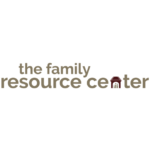Parent review feedback summary
- Parent reviewers are generally supportive of kinship wraparound services but want child welfare systems to consult families on what they feel is their priorities, rather than making assumptions, and to exhaust all kin options before exploring non-kin placement. One reviewer said that “families’ needs have to be the first priority, not just what the case worker thinks should be the priority.”
- Although kin placement placement is the right thing to do for children, parent reviewers want social workers to know they are responsible for guaranteeing these placements are safe.
- Reviewers want kin to be supported in the process, perhaps with concrete supports such as financial funds to take on the role of caretaker.
What is the intervention?
The Family Resource Center (FRC) in Gorham, New Hampshire provides community-based kinship navigator and wraparound services to families with kin placements of any kind, formal or informal. Through Comprehensive Family Support Services, families have access to a wide range of support including education, tutoring, social groups, emergency funds, and peer support, getting the help needed to solve immediate challenges to stay out of the child welfare system.
If a child is placed out of the home and with kin, Kinship Navigators help kin caregivers to find the resources they need. Further, staff in the FRC Strength to Succeed program are parents in recovery who have successfully reunified with their children and are out of the child welfare system. As peers, they provide recovery-based support to parents struggling with addiction and who have kids in placement.


What makes it a Bright Spot?
The FRC can help all family members (moms, dads, family caregivers, and kids) in a variety of ways. Kin caregivers and parents working toward reunification can get parenting help, emergency funds, emotional support, community connections to other services, and social support networks. These services and more can be pieced together to help a whole family meet their specific needs.
One example is if a parent is getting recovery support through Strength to Succeed and their child is placed with a grandparent, the Kinship Navigator can help educate the grandparent on substance use issues. Parents and relatives have help getting on the same page, working through anger and other emotions throughout the process.
While the FRC has a service contract with New Hampshire Division for Children, Youth and Families (DCYF) and many referrals are made from DCYF, the FRC provides support outside the state or county child welfare department. FRC staff are employed by the FRC, not DCYF. Across the state of New Hampshire, the Kinship Navigator programs are housed in FRCs, yet coordinated by the New Hampshire Children’s Trust, and funded by a variety of sources.
In 2023, more than half of the 221 caregivers enrolled in the Strength to Succeed had their open closed by CPS, without further involvement.
What steps can you take?
- Build a relationship with your local FRC, if there is one. Learn from FRCs about the strengths and needs of the community.
- Support the development of a peer recovery support program like Strength to Succeed at your local FRC. Peer recovery support for those engaged in the system is a uniquely valuable service and when housed in a local FRC can be part of wraparound support for the whole family system.
- Learn more about Family Resource Centers and steps on how to start one in your community.
Downloadables
These downloadable resources may help provide additional context and information about this family-approved resource for systems change.
Let us know any information to consider adding to this Bright Spots practice.
Share this Bright Spot with a colleague
Have an idea?

